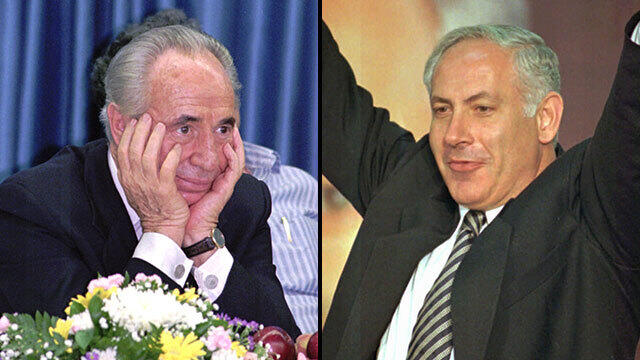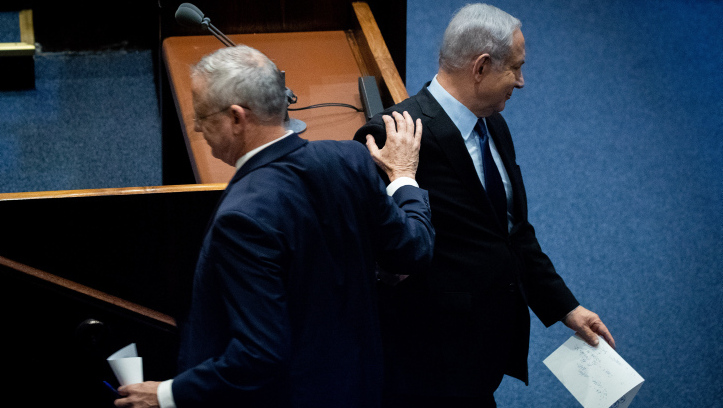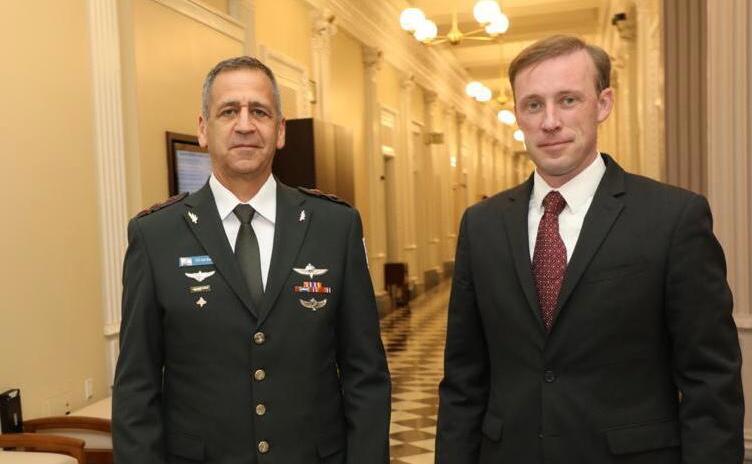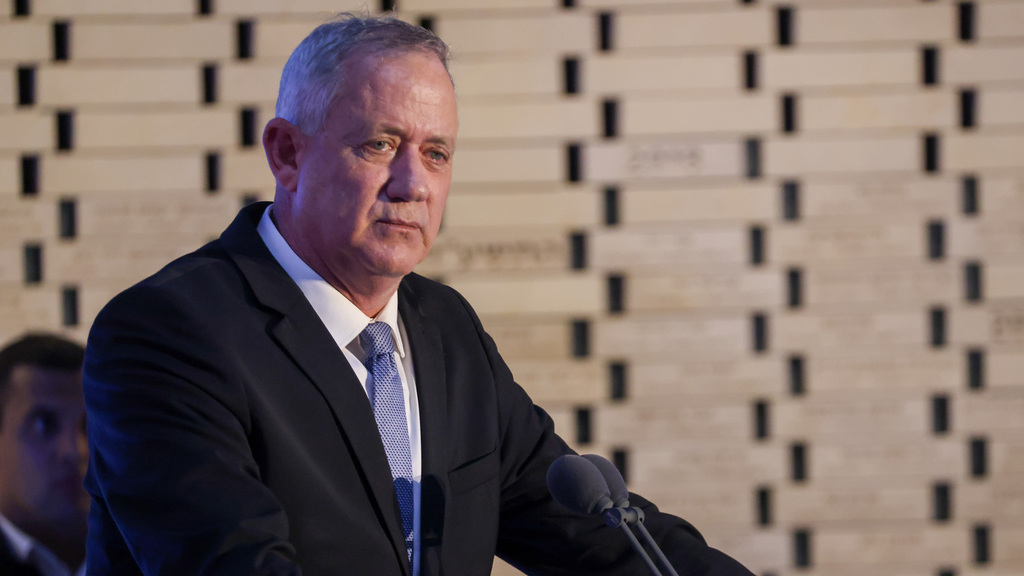While former prime minister Benjamin Netanyahu's political opponents were constantly changing over the years, his tactic to eliminate them always remained the same.
In 1996, a pre-election survey revealed that the public saw then-leader of the Labor party, Shimon Peres, as "more reliable, and more authoritative” than Netanyahu. Despite that, the majority also believed that Peres’s policy toward the Palestinians posed a threat to Israel's security.
6 View gallery


Then-leader of Labor Shimon Peres (L), Likud leader Benjamin Netanyahu during the 1996 elections
(Photo: AP)
Netanyahu took note of that survey and used it to form the holy trinity of slogans that would accompany him in all his future political campaigns: "Leftists, weak, dangerous to the state.”
Eventually, Netanyahu won the 1996 elections because Peres failed to evoke a sense of security among the Israeli public.
In the 1999 elections, Netanyahu used the same tactic against another Labor leader Ehud Barak, who was a former chief of staff and commander of the IDF’s Special Forces Unit. His image as a strong and unwavering leader - cultivated by his decorated military past - eventually won him the elections against Netanyahu by a wide margin.
6 View gallery


Prime Minister Naftali Bennett flanked by his coalition members during a cabinet meeting
(Photo: Alex Kolomoisky)
Netanyahu is still trying to use the same tactic today. That is why he continually says that Prime Minister Naftali Bennett’s coalition, which managed to oust him after a 12-year rule, is a” weak and dangerous leftist government.”
Bennett and his partner in the rotating government, Yair Lapid, are not seen as strong security figures. Bennett has a certain military background, but a fragile physical presence. Lapid, who in his youth was an amateur and unsuccessful boxer, served his time in the army as a writer for the IDF’s daily newspaper.
The strong security figure in the new government, and the answer to Netanyahu’s claims of alleged weakness, is former chief of staff and current Defense Minister Benny Gantz. The Blue&White leader's military past should have easily earned him the title of “Mr. Security,” which Netanyahu claimed for himself.
Currently, Gantz is perceived as nothing more than a high-ranking poster boy for the military. His conduct during his initial years in Israel’s political system has only deepened this impression.
His image suffered another blow in 2020, when he elected to join Netanyahu-led unity government despite numerous campaign promises not to do so. This was an ill-advised move that only made the former chief of staff look like another spineless politician.
Even when he regained his senses and started fighting back against Netanyahu, he did so in a somewhat fumbling manner.
Eventually though, Gantz managed to position himself as a natural and trustworthy defense minister. He has the professional skill and peace of mind required to deal with what is perceived by Israelis as the only true life and death issue - national security.
6 View gallery


Benny Gantz pats then-prime minister Benjamin Netanyahu on the shoulder, October 2020
(Photo: Flash90)
Despite the occasional incendiary balloon launched from Gaza into Israel, Gantz during his tenure had been a successful defense minister who looks like he feels comfortable in his position, similarly to his time as military chief.
The question is, however, what will happen in the more turbulent days that likely lie ahead? What will happen if the fighting against Gaza’s terror factions resumes? If a confrontation against Lebanon's Hezbollah breaks out? If terrorist attacks take place in the West Bank? If Iran becomes stronger thanks to the return to the 2015 nuclear deal?
These issues will surely be emphasized relentlessly by opposition leader Netanyahu, who will most likely continue to act as if he is still prime minister by issuing "important policy announcements" and claiming that Bennett's government "harms Israel’s security."
The one who can aid Gantz against all the aforementioned security threats and dubious claims by Netanyahu is current Chief of Staff Aviv Kochavi.
The military chief is a public figure who has a great deal of influence, especially in times of emergency.
Kochavi is perceived differently from Gantz, whose progress in the army seemed to have depended more on luck and less on his operational capabilities.
Kochavi, on the other hand, was marked for the position of military chief very early on. He has a winning combination of intellect, charisma and originality in military thinking.
It is no coincidence that he was mentioned in the media as someone who will face outgoing Mossad chief Yossi Cohen in future elections for prime minister.
Gantz apparently understands the importance of having a chief of staff with a respectable resume and a positive public reputation. He worked to extend Kochavi’s term as military chief to four years, hinting that a fifth year is also on the table.
6 View gallery


Chief of Staff Aviv Kochavi meeting with U.S. National Security Advisor Jake Sullivan in Washington
(Photo: Shmulik Almani)
Gantz also sent Kochavi to the United States for talks with U.S. officials on the Iranian threat, something that Netanyahu avoided doing so that it would not embarrass him.
The defense minister also promised that he would enter politics for only ten years, partnering with Kochavi would allow him to cultivate a worthy successor. More importantly, it will help him stabilize the defense establishment and deprive Netanyahu of the only tool that could bring him back to power.
Dr. Baruch Leshem is a lecturer at the Department of Politics and Media at Hadassah Academic College in Jerusalem and writer of the book "Benjamin Netanyahu - Master of Political Marketing"



